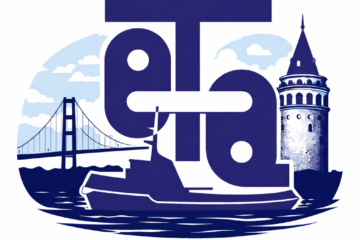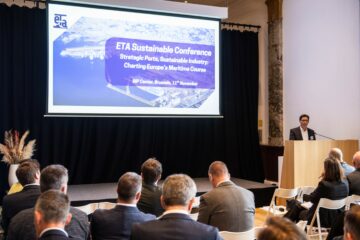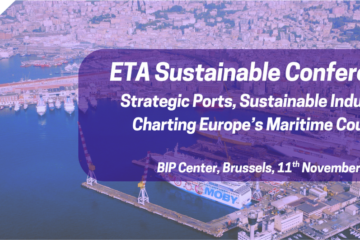ETA organised its first 2021 webinar on the 17th of February. The event was dedicated to the sector experiences with LNG and hybrid tugs. 90 participants representing the towage industry and its suppliers could follow a rich discussion on the adoption of these greener technologies. The discussions, ably moderated by Steve Dougal Century Marine Services, focused on the different technical aspects (propulsion, training of crews, tug design…), that will be very importance for shipowners if they decide to choose these greener options.
Vetle J. Sverdrup – Buksér og Berging AS presented the company´s experience with LNG tugs. Buksér og Berging was in 2014 the first towage company in the world to operate a LNG powered escort tug, M/T Borgøy. The company has registered important CO2 and NOx emissions reductions during the last years. This greener performance is not only a consequence of this fuel choice but also the result of years analysing data and adopting the best practice to operate in a more efficient way.
Koos Smoor – Kotug International focused on hybrid tugs and the many ways crews and technical staff need to adapt to this technology. This means a closer cooperation between tugmaster and engineers, the continuous definition of best practice to improve the efficiency of operations and extend the lifetime of bateries, etc. Mr Smoor called as well for more support to early adaptors, so their technical and financial efforts on greening their fleets do not end up being isolated and impactless actions.
Geert Vandecapelle – Boluda Europe described the hybrid technology´s diverse benefits, from CO2 and NOx reductions (30% – 35% in both cases) to improved fuel economy and maintenance savings. This technology is best when used in a port environment with locks. Moreover, Mr Vandecapelle addressed as well the challenges posed by the new IMO TIER III requirements, which has made Boluda Towage to retrofit and order new tugs adapted to these provisions.
Celine Audenaerdt – Port of Antwerp highlighted the role of the port as a renewable energies hub and as a towage operator. In this regard, the port authority is implementing a plan to reduce the carbon emissions of its fleet, focusing on alternative fuels and the constant improvement of processes to increase their efficiency. Thus, the port has chosen to adopt hydrogen, methanol and electricity as the solutions to green its tugboats fleet.
Roxana Caliminte – Gas Infrastructure Europe described the availability of LNG in European ports, and underlined the importance of European legislation, especially the Alternative Fuels Infrastructure Directive to enhance the role of LNG terminals as an essential factor to green the shipping industry. This legislation should support the development and increase the shares of bioLNG and foster the construction of decarbonised refuelling stations in ports.
The ETA Secretariat thanks all participants and speakers for a very interesting debate on the EU the adoption of these two greener technologies. We are looking forward to meeting our members again in our next webinar in April.



0 Comments